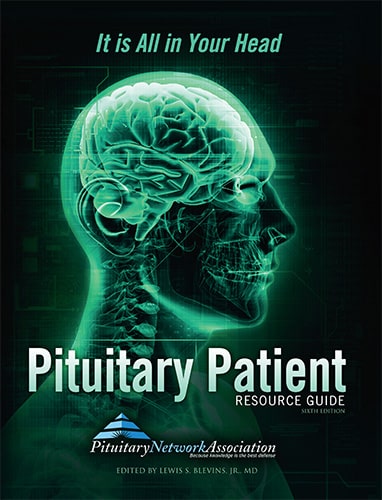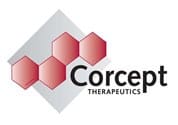Glossary Index by Letter
Absorbtion
A taking in or reception by molecular or chemical action. In radiology, the uptake of energy from radiation by the tissue or medium through which it passes.
Accessible
Refers to tumors that can be approached by a surgical procedure. Tumors that are not deep in the brain or beneath vital structures. Inaccessible tumors cannot be approached by standard surgical techniques.
Acromegaly
A disease caused by the overproduction of growth hormone by the pituitary gland. Acromegaly occurs in 2.6 % of the pituitary patient population but is difficult for some doctors to detect and treat. Acromegaly affects both men and women. In almost all cases,...
ACTH
Adrenocorticotropic hormone, corticotropin. ACTH is a hormone released from the anterior pituitary gland in the brain, also known as: Serum adrenocorticotropic hormone; Adrenocorticotropic hormone. The levels of ACTH change with the body's natural 24-hour cycle of...
Acuity
Refers to clarity or distinctness of hearing or sight. Sharpness or keenness. A visual acuity test will determine the smallest letters a person can read on a standardized chart held 14 - 20 feet away.
Acupuncture
The practice of inserting needles into the body with the aim of reducing pain. Acupuncture is among the oldest healing practices in the world. As part of traditional Chinese medicine (TCM), acupuncture aims to restore and maintain health through the stimulation of...
Acute
Of short duration, rapid and abbreviated in onset. Describes something that happens suddenly and for a short time. Opposite of chronic.
Adenoma
A benign tumor that arises in or resembles glandular tissue. May or may not produce hormones in excess. Presence may affect normal glandular function.
ADH
Antidiuretic hormone, vasopressin. Also known as Arginine vasopressin; Antidiuretic hormone; AVP; Vasopressin. ADH is also a test (water restriction test) that measures the amount of antidiuretic hormone (ADH) in the blood. ADH is found in the body and it is also...
Adhesion
Union of two tissue surfaces. Also, scar tissue that can form in the area of a previous operation. Adhesions are scar-like tissues that form between two surfaces inside the body. Surgery, inflammation, or injury can cause tissues to bond to other tissue or organs,...
Adjuvant
A therapy used in addition to or accompanying another treatment. Adjuvant (therapy). Treatment given after or in addition to the primary treatment to increase the chances of a cure. Adjuvant therapy may include chemotherapy, radiation therapy, hormone therapy, or...
Adrenal Glands
A pair of endocrine glands which produce small quantities of vital hormones. The adrenal glands sit on top of the kidneys and are controlled by the pituitary gland. They produce aldosterone which regulates salt and potassium balance, cortisol which is a stress...
Allergen
A substance that is foreign to the body and, in some people, can cause an allergic reaction. An allergen is a substance that can cause an allergic reaction. Allergens are substances that, in some people, the immune system recognizes as "foreign" or "dangerous" but...
Allergy
A hypersensitivity of the body's immune system in response to exposure to specific substances (antigens). A hypersensitive immune reaction to a substance that normally is harmless or would not cause an immune response in most people. An allergic response may cause...
Alopecia
Loss of hair; baldness in areas where hair is usually present. A common side effect of radiation therapy to the brain and some chemical therapies.
Ambulatory
Able to walk around, not bed-ridden. Able to walk about and not bedridden, as in an ambulatory patient or outpatient.
Amenorrhea
The failure of a woman to menstruate. Amenorrhea is the absence of a menstrual period. Primary amenorrhea is when a young woman has not yet had a period by age 16. Secondary amenorrhea describes someone who used to have a regular period but then it stopped for at...
Analgesic
A medicine used to reduce pain. Pain medications are also called analgesics. Analgesics include aspirin, acetaminophen, and ibuprofen. Every pain medicine has benefits and risks. Specific types of pain may respond better to one medication over another. Results also...
Anaphylaxis
An acute systemic allergic reaction. In severe cases, this can include potentially deadly anaphylactic shock. Also known as Anaphylactic reaction. Anaphylaxis is a life-threatening, whole-body allergic reaction. After being exposed to a substance like bee sting venom,...
Anaplasia
Characteristics of a cell that make it identifiable as a cancer cell. Malignant A change in the structure of cells and in their orientation to each other; characteristic of malignancy. Malignant cells that have returned to a more undifferentiated or primitive...






